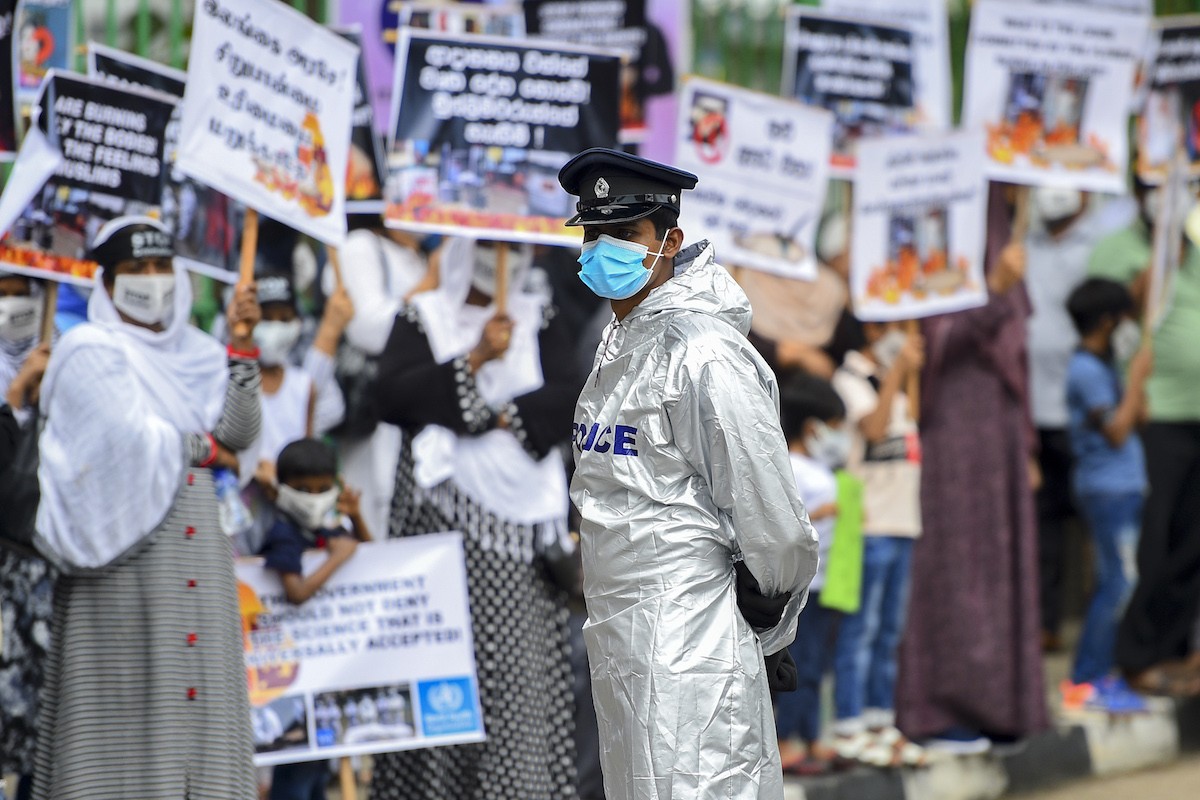A new report by Amnesty International noted how Sri Lanka’s Muslim community has suffered consistent discrimination, harassment and violence since 2013.
The report titled “From Burning Houses to Burning Bodies: Anti-Muslim Harassment, Discrimination and Violence in Sri Lanka” traces the development of anti-Muslim sentiment in the country since 2013.
Released on October 17, the report said discrimination against Muslims has evolved from “a rising series of mob attacks committed with impunity, into government policies explicitly discriminating against Muslims.”
Among the examples cited by the report are the forced cremation of Muslim COVID-19 victims and the current proposals to ban both the face veil and Muslim religious schools.
“While anti-Muslim sentiment in Sri Lanka is nothing new, the situation has regressed sharply in recent years,” said Kyle Ward, Amnesty International’s deputy secretary general, in a statement.
He noted that incidents of violence against Muslims “have occurred with alarming frequency.”
“This has been accompanied by the adoption by the current government of rhetoric and policies that have been openly hostile to Muslims,” said Ward.
“The Sri Lankan authorities must break this alarming trend and uphold their duty to protect Muslims from further attacks,” he added.
The Amnesty International report said that hostility against Muslims began with the anti-halal campaign in 2013 when Sinhala Buddhist nationalist groups lobbied to end halal certification of food.
The campaign gave rise to a number of attacks on mosques and Muslim businesses, with the lack of accountability for those responsible acting as a signal to others that acts of violence against Muslims could be committed with impunity, said the report.
The report noted that despite a new government in 2015, which promised justice and accountability for ethnic and religious minorities, attacks against Muslims continued to occur.
The hostilities intensified after the 2019 Easter Sunday attacks that were allegedly committed by a local Islamist group and claimed by the Islamic State.
Following the Easter Sunday incident, Muslims in several towns came under attack during Ramadan. Mosques across the country were also attacked and a spate of “hate speech” posts was seen on social media.
“From anti-terrorism laws and forced cremations to niqabs and madrasas, the Sri Lankan government has pursued a blatantly discriminatory policy agenda against Muslims,” said Amnesty International’s Ward.
“We urge the authorities to reconsider the proposals currently under consideration, and for the international community to monitor and take measures to ensure the freedom and protection of minority communities in Sri Lanka,” he added.







